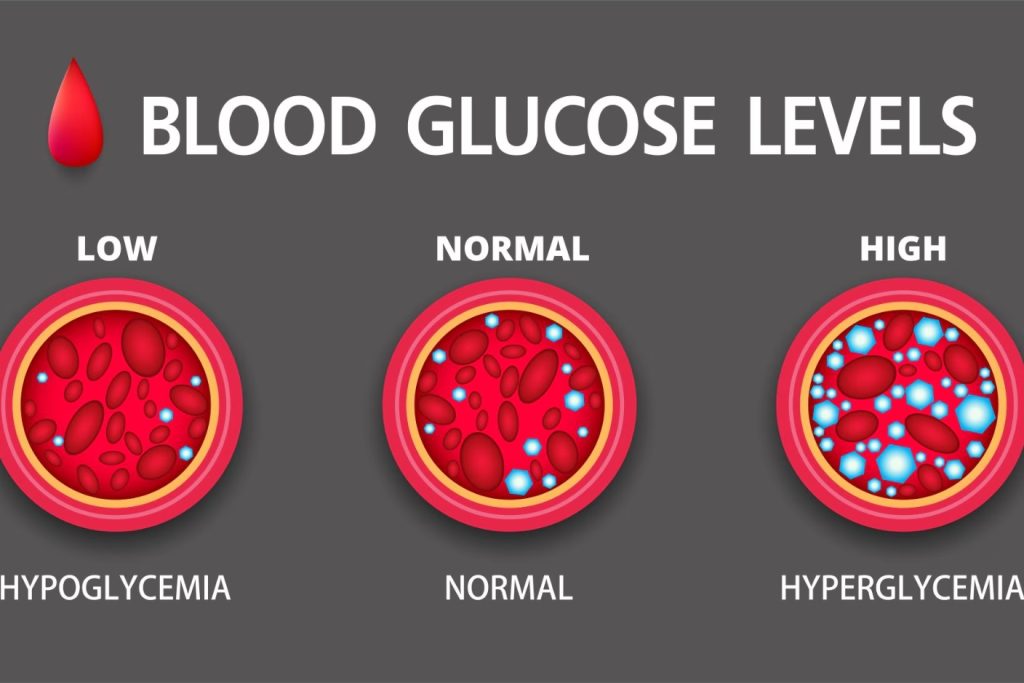Blood sugar, or glucose, is the body’s primary source of energy. It circulates in the bloodstream and is regulated by a hormone called insulin, which is produced by the pancreas. When this delicate balance is disrupted—either due to the body not producing enough insulin or becoming resistant to it—it leads to blood sugar problems. These imbalances can result in conditions like hypoglycemia (low blood sugar) or hyperglycemia (high blood sugar), and over time, can lead to chronic illnesses such as diabetes.
In this article, we’ll explore everything you need to know about blood sugar problems: what causes them, how they affect the body, the signs to watch for, and how to manage them effectively.
Top Supplement | It’s Natural & Benefits | Order Now (up to 25% Offer) | ||
| FoliPrime | Natural serum that strengthens roots and supports healthy hair growth. | Order Now |  | More details |
| Energeia | Energeia boosts metabolism, burns fat, and supports weight loss | Order Now |  | More details |
| Folicrex | Natural formula that targets hair loss and boosts scalp health naturally. | Order Now |  | More details |
| GlucoTrust | Supports healthy blood sugar with natural herbs and deep sleep. | Order Now |  | More details |
| ProDentim | Natural probiotic formula that supports gum health and fresh breath. | Order Now |  | More details |
| ProNail Complex | Natural blend that strengthens nails and supports healthy fungal defense. | Order Now |  | More details |
| Synogut | Supports healthy digestion using natural fibers, herbs, and probiotics. | Order Now |  | More details |
| Zen Cortex | Natural formula that enhances focus, memory, and mental clarity safely. | Order Now |  | More details |
| Metanail Serum Pro | Natural serum that strengthens nails and fights fungal infections effectively. | Order Now |  | More details |
| FlowForce Max | Natural formula that supports prostate health and improves urinary flow. | Order Now |  | More details |
| Tonic Greens | Natural supergreens blend that boosts energy, immunity, and detoxification. | Order Now |  | More details |
What Is Blood Sugar?
Blood sugar, also known as blood glucose, is a type of sugar that comes from the food we eat. It’s the body’s main source of energy and is especially vital for brain function. After we eat, carbohydrates are broken down into glucose, which enters the bloodstream. Insulin helps move that glucose from the blood into cells where it can be used for energy.
Normal Blood Sugar Levels:
Fasting (before meals): 70–99 mg/dL
Post-meal (2 hours after eating): Less than 140 mg/dL
A1C (3-month average): Below 5.7% is normal
If your numbers regularly fall outside of these ranges, it may be a sign of a blood sugar issue.
Types of Blood Sugar Problems
1. Hypoglycemia (Low Blood Sugar)
This occurs when your blood glucose level drops below normal. It’s most common in people with diabetes who take insulin, but it can also occur due to poor diet, excessive alcohol consumption, or other health conditions.
Common symptoms include:
Shakiness or trembling
Dizziness
Sweating
Confusion
Irritability
Rapid heartbeat
In severe cases, hypoglycemia can cause fainting, seizures, or coma.
2. Hyperglycemia (High Blood Sugar)
High blood sugar happens when the body either doesn’t produce enough insulin or can’t use it properly. It can lead to prediabetes or type 2 diabetes if left unmanaged.
Symptoms of high blood sugar:
Frequent urination
Increased thirst
Fatigue
Blurred vision
Slow healing of wounds
Persistent hyperglycemia can damage organs, nerves, and blood vessels over time.
What is GlucoTrust?
GlucoTrust is a supplement marketed towards individuals seeking to manage their blood sugar levels. The company claims it achieves this by targeting the root causes of blood sugar imbalances. Overall, while GlucoTrust may seem like an attractive option to manage blood sugar, it’s crucial to approach it with caution. Discussing it with your doctor is important before you decide if it’s right for you.
Buy From Official Website (Get Up to 75% Discount)
Causes of Blood Sugar Imbalances
Understanding the root causes of blood sugar issues can help in early prevention and treatment.
1. Poor Diet
Eating a diet high in refined carbs and sugar spikes your glucose levels. Processed foods, sugary drinks, and baked goods can create quick highs followed by sharp drops in blood sugar.
2. Lack of Physical Activity
Exercise helps your body use insulin more effectively. Without regular physical activity, your cells can become resistant to insulin, leading to elevated blood sugar levels.
3. Obesity
Carrying excess weight, especially around the abdomen, is a major risk factor for insulin resistance and type 2 diabetes.
4. Stress
Stress releases hormones like cortisol and adrenaline, which can interfere with insulin and cause blood sugar to rise.
5. Medications or Health Conditions
Certain medications (like steroids) or conditions such as PCOS and hormonal imbalances can affect how the body regulates sugar.
Long-Term Complications of Blood Sugar Problems
If not managed properly, blood sugar imbalances can lead to:
Type 2 Diabetes: A chronic condition that affects how your body processes sugar.
Heart Disease: High blood sugar can damage blood vessels and increase the risk of heart attacks and strokes.
Kidney Damage: Prolonged hyperglycemia can damage the kidneys, leading to kidney failure.
Vision Problems: Diabetic retinopathy is a common issue caused by damaged blood vessels in the eyes.
Nerve Damage (Neuropathy): Especially in the hands and feet, leading to pain or numbness.
Who Is at Risk?
Certain people are more prone to blood sugar issues, including:
People with a family history of diabetes
Overweight or obese individuals
Those over age 45
Women with a history of gestational diabetes
People with sedentary lifestyles
Individuals with high blood pressure or cholesterol
How to Manage Blood Sugar Naturally
Whether you’re looking to prevent or manage blood sugar problems, lifestyle choices play a huge role. Here are evidence-backed tips:
1. Adopt a Balanced Diet
Focus on whole foods rich in fiber, healthy fats, and lean proteins. Limit sugary and refined carbohydrate-rich foods.
Good foods for blood sugar control:
Leafy greens (spinach, kale)
Whole grains (quinoa, oats)
Legumes (lentils, chickpeas)
Fatty fish (salmon, sardines)
Berries
Nuts and seeds
2. Stay Hydrated
Water helps the kidneys flush out excess sugar. Aim for at least 8 glasses per day, and avoid sugary drinks.
3. Exercise Regularly
Even a 30-minute walk after meals can improve insulin sensitivity. Combine cardio with strength training for optimal results.
4. Get Enough Sleep
Lack of sleep disrupts insulin and hunger hormones, increasing cravings and raising blood sugar levels.
5. Manage Stress
Meditation, yoga, deep breathing, and spending time in nature are excellent ways to reduce stress and improve hormonal balance.
Monitoring Your Blood Sugar
If you have or are at risk of blood sugar issues, regular monitoring can help you stay on track.
Glucose Meters: Measure blood sugar levels at home.
Continuous Glucose Monitors (CGMs): Provide real-time insights.
A1C Test: Taken every 3 months to assess long-term control.
Keep a log of your numbers, meals, and symptoms to understand your patterns better.
When to See a Doctor
It’s important to consult a healthcare provider if you experience any of the following:
Unexplained weight loss
Frequent urination or extreme thirst
Blurred vision
Fatigue that doesn’t go away
Tingling in hands or feet
Early diagnosis can help prevent serious complications.
Medical Treatments
For people diagnosed with diabetes or significant blood sugar problems, medical interventions may be necessary:
Oral Medications: Such as metformin, which helps regulate blood sugar.
Insulin Therapy: Injected insulin for those whose bodies don’t produce enough.
GLP-1 Agonists and SGLT2 Inhibitors: Newer classes of drugs that help with weight loss and blood sugar control.
Always follow your doctor’s advice and never stop taking medication without consulting them.
Final Thoughts
Blood sugar problems are common but manageable with the right approach. Whether you’re already dealing with diabetes or simply want to keep your glucose in check, healthy lifestyle changes can make a world of difference. Don’t wait for a diagnosis to start paying attention—start making small but consistent choices today for a healthier tomorrow.

